Training
Enabling the next generation of biomedical informaticians and data scientists
We believe students should understand how research can be impactful by being a part of interdisciplinary team science that changes our understanding of disease and ultimately improves patient lives. With over two decades of experience, Medical & Imaging Informatics (MII) is at the heart of multiple efforts on our campus involving biomedical informatics and data science training. Our trainees have gone on to be successful in academic, industry, and other roles.
MII plays a central role in the Graduate Programs in Bioscience (GPB) Medical Informatics Home Area. We support multiple NIH-funded training programs, including a longstanding effort in medical and imaging informatics; and newer NIH-related programs in biomedical data science and informatics. Through active collaborations in multiple areas, our trainees have opportunities to participate in cutting-edge research with thought-leaders in science, engineering, and medicine.


Our prior Research Informatics Summer Experience (RISE) program supported an 8-week undergraduate summer internship, providing an opportunity to work with graduate students, postdocs, and faculty on various biomedical informatics projects. We now encourage undergraduates through UCLA BIG, as well as through the Computational Systems Biology (CSB) undergraduate program.

We train PhD graduate students from a number of UCLA departments and programs, including the Medical Informatics Home Area, Bioengineering, and other fields. Students come from a variety of backgrounds (computational, engineering, biological/clinical, basic science). We also support MD/PhD trainees and UCLA STAR fellows.
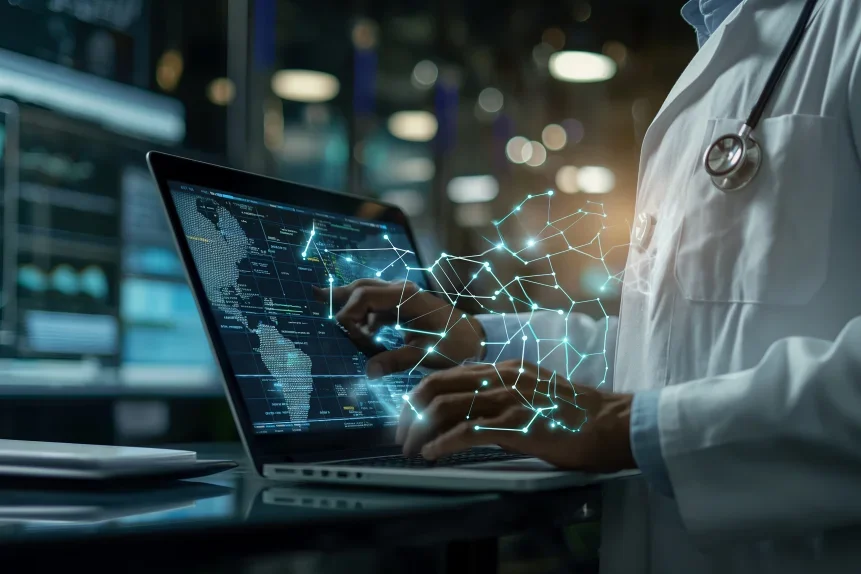
MII faculty take on postdoctoral trainees for additional experience in specific areas of biomedical informatics and data science; as well as MDs for longer-term training experiences, supporting NIH K-awardees and other career development awards.
Teaching tomorrow's leaders to transform healthcare
Training Programs & Fellowships
Our innovative, nationally recognized training programs provide UCLA students novel opportunities for a range of advanced studies for graduate and post-graduate education. For additional information on applying to be a student with Medical & Imaging Informatics, please visit this page: Applying to MII.
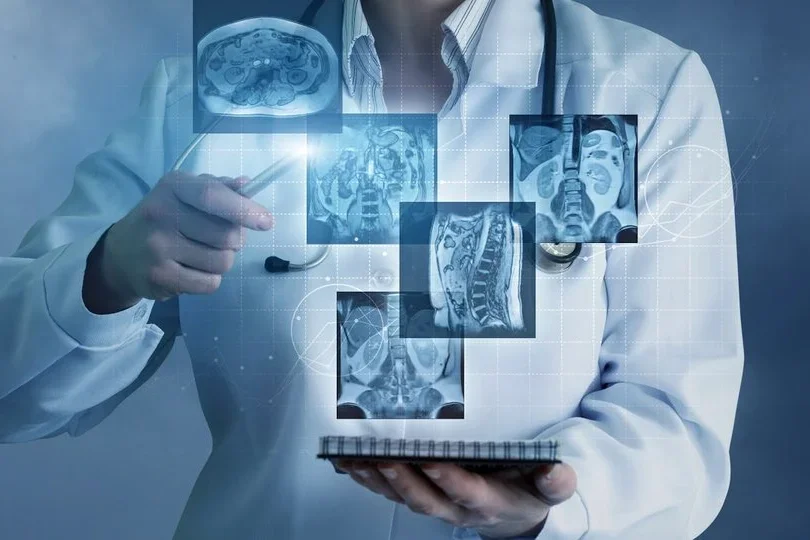
MEDICAL & IMAGING INFORMATICS
MII’s signature graduate training program since 2002, this T32 supports PhD students interested in new approaches addressing the spectrum of research using new and emergent types of data from imaging, sensors, and other technologies to drive novel sights into the human condition. Coursework provides a breadth of understanding across areas of biomedical informatics and data science, and an introduction to cutting-edge computational methods for analysis and clinical decision support. Research spans from basic science to translational efforts.
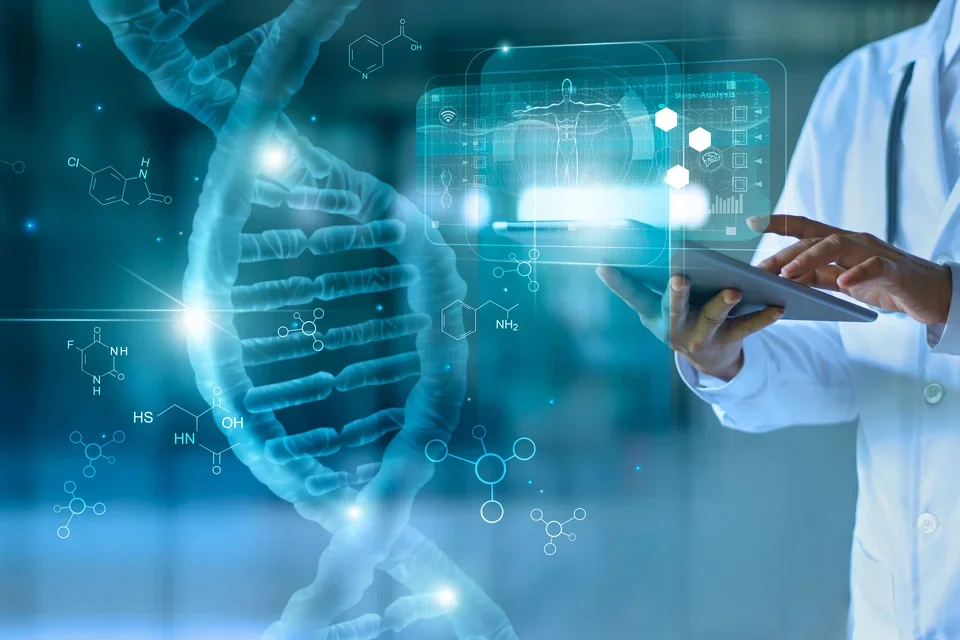
BIOMEDICAL DATA SCIENCE FOR PRECISION HEALTH
Our NLM T15 trains graduate students and postdoctoral fellows at the intersection of computational approaches, biomedical informatics, public health, and precision medicine. This program addresses the gap in translating scientific discoveries into precision healthcare solutions. Trainees gain expertise in clinical informatics, translational bioinformatics, clinical research, and public health informatics through an interdisciplinary curriculum, hands-on research, and team science. The program emphasizes sociotechnological concerns to ensure precision health benefits all individuals. With mentorship from leading scientists and clinicians, participants will develop the skills to drive innovation, improve healthcare policies, and transform healthcare delivery for all populations.
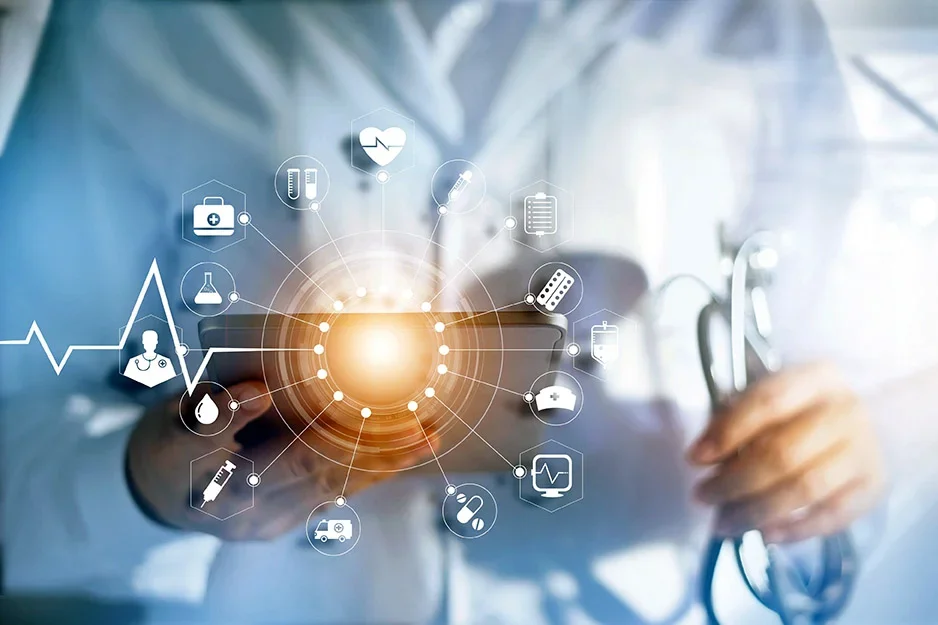
LEARNING HEALTH SYSTEMS
UCLA’s Clinical and Translational Science Institute TL1 program provides formal training opportunities for individuals interested in learnings health systems and the role of data science. Individuals take biomedical informatics and data science coursework with graduate students from engineering and the Medical Informatics Home Area, providing a rich environment for collaborative learning. Projects focus on demonstration implementations, particularly around the EHR, implementation science, AI, and realizing a real-world learning systems.

KUH-ADVANCED RESEARCH TRAINING
The Kidney, Urologic, and Hematologic-Advanced Research Training (KUH-ART) TL1 is a comprehensive Los Angeles metropolitan area-based interdisciplinary graduate and postgraduate training program to prepare trainees for long-term productive careers in high-impact research in benign nephrology, urology and hematology. KUH-ART offers a personalized guidance program, matching interested trainees with research mentors and labs and provides easy-to-access general mentoring support and trainee advocacy; career guidance and general research career skills (manuscript and grant preparation, collaboration, scientific communication, and networking) through partnerships with existing programs under UCLA CTSI; as well as trainee exposure to the array of available research careers from academia to biotechnology and pharma.
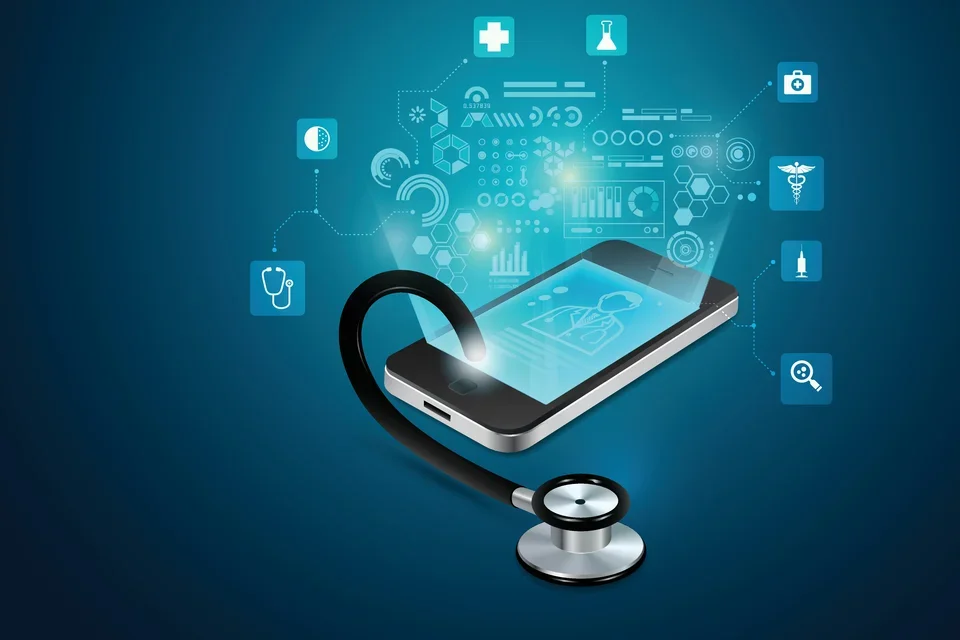
AHA iDIVERSE
Our American Heart Association iDIVERSE program is a collaboration between UCLA, University of Hawaii, and Washington University to establish research projects and training to advance cardiovascular health for all. This program tackles improving community, academic awareness of research ethics, demystifying academia, and addressing attitudinal barriers by enhancing clinical trial recruitment. Specific training modules are being developed to provide tailored methods for recruitment, particularly though the use of new mHealth, artificial intelligence, and biomedical data science methods.

MEDICAL INFORMATICS HOME AREA
The Medical Informatics Home Area is UCLA’s nexus for interdisciplinary training in biomedical informatics and data science. UCLA provides a unique environment to bring together cutting-edge expertise and experience in a dynamic environment for PhD graduate students engaged at the intersection of engineering, medicine, public health, and other related fields — and focusing on the goal of transforming modern healthcare through contemporary data-driven methods and tools. Drawing on leading experts from the Schools of Medicine, Engineering, Public Health; and the College of Letters & Science, our Home Area faculty cover the breadth of medical informatics research. Students participate in team science in new, immersive ways — translating the latest methods from computer science, (bio)statistics, and other areas to solve real-world clinical challenges and to imagine the future of digital medicine.